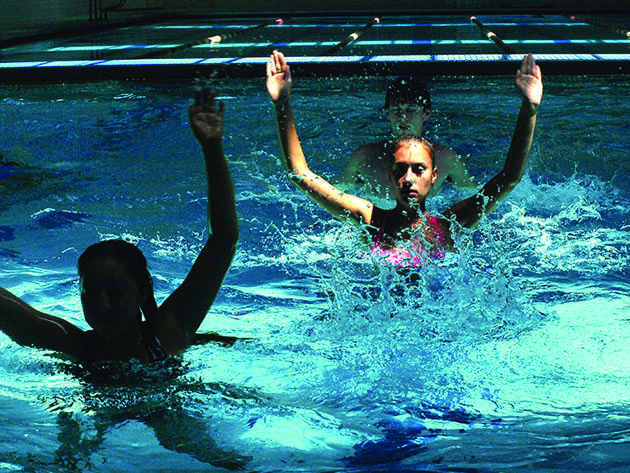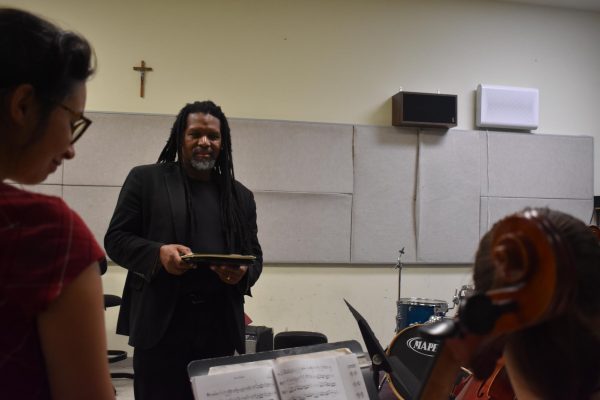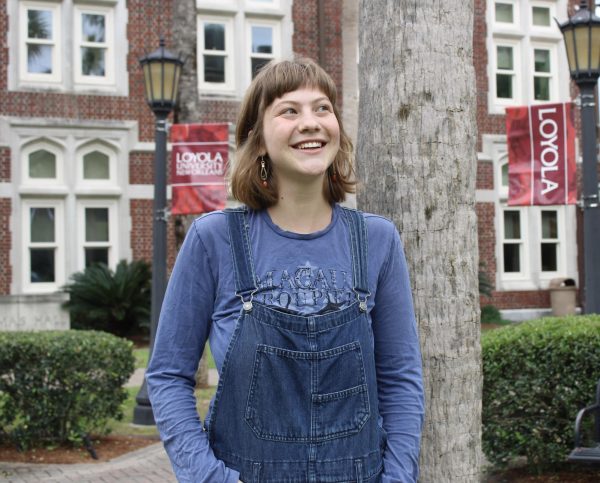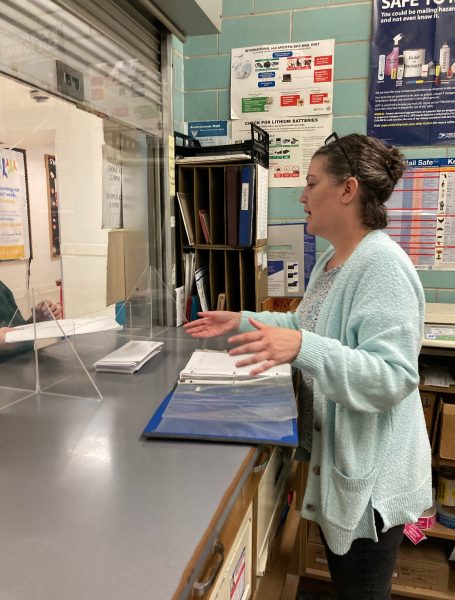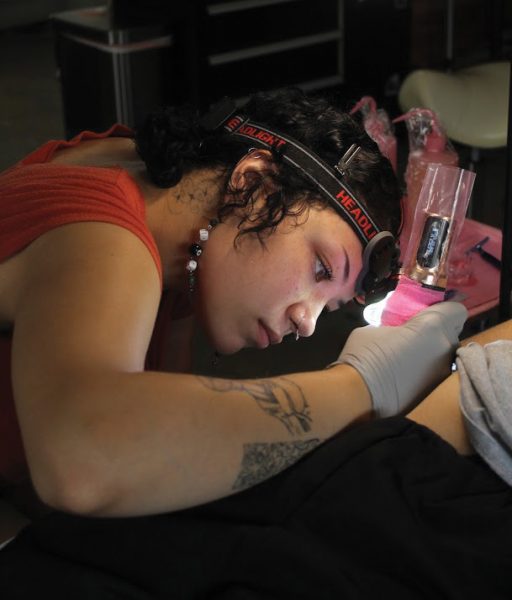Cross country team takes to the water
Francesca Vaccaro, biology and chemistry senior, Ashleigh Sparks, visual arts graphics junior and Paul Freese, history senior, perform in-pool exercises for cross-country in the University Sports Complex. Max Shelton, the cross-country team’s new coach, has tightened the training schedule and implemented new rules in hopes of getting the team to this year’s national championships.
August 22, 2014
This year, Loyola’s cross-country team is enforcing a stricter training regimen in order to have as successful a season as possible.
In addition to outdoor training, Matt Shelton, cross-country coach, is taking his team to the swimming pool, an exercise he said minimizes impact and injuries. He is also training his team to use weights.
“They haven’t really touched up on it in the past. Mainly the reason we’re doing it is that we’re trying to strengthen their cores and be able to adjust to the conditions that they’re going to be competing in,” Shelton said.
The team is also training twice a day — once in the morning, and again in the afternoon. Shelton said this increased training schedule would help them prepare for the invitationals.
“We wake up at 6:30 a.m. and we have more two-a-days,” Denise Powell, cross-country team member and biology senior, said. “Then we have more weight lifting and our workouts have become stricter.”
Raquel Derganz-Baker, communication and journalism senior and another member of the team, said she is seeing the benefits of this stricter training.
“The multiple practices a day will make us stronger. That will help,” Derganz-Baker said.
The team’s training has not been limited to weights and pool time, however. They are also expected to maintain healthy habits outside of practices.
“We also have to keep track of what we eat and have to take vitamins,” Powell said. “Coach wants us to maintain a healthy diet. We have been doing four sets of whatever sports or exercise we want to do on our free time. This helps prevent injuries.”
Despite the longer hours, some of the senior members of the team said that the new regimen has strengthened them sooner than their past workouts have done.
“People have been complaining a lot less about their injuries. By this time, people are burnt out from conditioning. Now it’s more gradual,” Powell said.
Shelton said the upperclassmen are the core of this year’s cross-country team because they are able to help train newer members and to set the tone against their opponents.
“We have a lot more people returning — people who’ve already been through it. People have been returning with goals. We have that leadership. Senior leadership right now is the main strength of the program,” Powell said.
The main challenge that the team admitted to facing is remaining constantly motivated through the intensive training, especially the junior and senior members who have been pushing themselves for a few years.
“Fourth year of anything is really hard. You still need to get back in the groove of it — senioritis in general, plus internships and balancing everything,” Powell said.
Shelton and the team said that they are motivated and plan to train relentlessly in order to reach their ultimate goal of competing in the national championships.
“I’ve got pretty good expectations. I think the men and women’s program are capable of finishing in the top three at the conference,” Shelton said. “I’d like to see them advance to the NAIA nationals as a team, so that’s one of my future goals. If it happens this year, that’s awesome, and if it doesn’t, then we’ll keep striving for it.”


